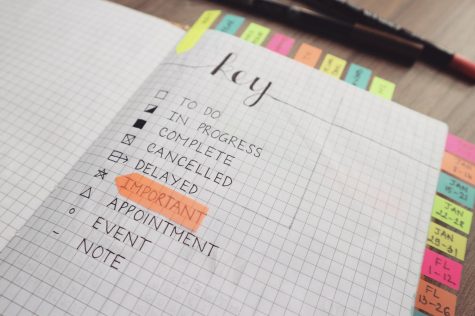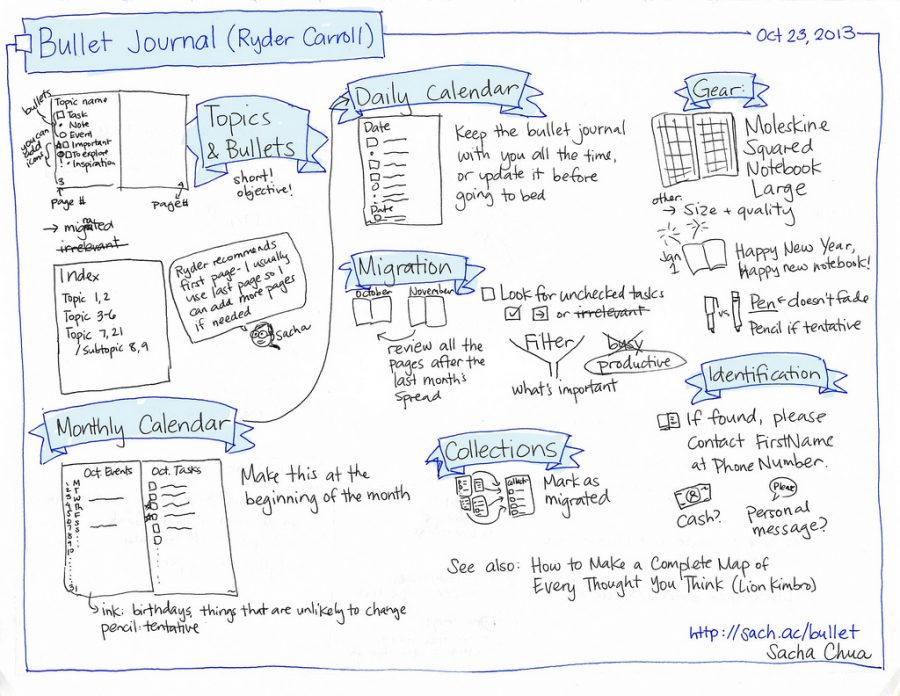Benefits of Bullet Journaling
Nothing drives me silently insane more than witnessing a classmate rummage through a backpack filled with nothing but loose sheets of paper. They’re always all crumpled up, folded and overflowing. It’s one of those things that I hate watching but can’t look away from. In my past few years as a student, I have come to value organization, not only in the sense of avoiding a backpack that’s constantly bursting at the seams, but more so in the way of mental clarity. I started keeping a bullet journal in mid-2017, but, before that, I had always used a planner religiously. I have been writing monthly, weekly and daily to-do lists for years at this point. The main benefit of a to-do lists is the way they allow you to hold yourself accountable. Putting something on paper (doing it in pen is important) that won’t stop haunting you until you cross it off is powerful, and normally is enough to get me to do it. They have also brought me to realize that there are a lot of things I don’t feel like doing.
List-making and bullet journaling have also brought me a lot of relief in terms of stress. If you aren’t familiar with bullet journaling, it’s basically an all-customizable planner meets diary meets sketchbook meets grocery lists meets calendar. All you need is a blank notebook and a pen (and a ruler if you’re high-maintenance when it comes to straight lines like me). Depending on how much time you want to dedicate to it and how artistic you want to get with it, it can be a great, therapeutic pastime, but more than that, it helps handle any work or stress load. I think it may sound silly to some, but simply writing out every little thing you have to do takes the heat and stress off a little bit.
I see the appeal to bullet journaling in the fact that you can have one place to plan out every aspect of your life, and you can take up as much or as little space as you want for each item. If you use your bullet journal to do weekly spreads, like you would find in any premade planner, you can look at any big projects or assignments you have per week and then design the following pages to organize and/or keep track of those individually. It’s a system that offers complete flexibility, and that’s what a lot of people need in terms of schedule planning.
![]()
Another part of this method that is touched on a lot in the online bullet journaling community is paying more attention to, and even tracking mental health and well-being. Things like sleep trackers, mood trackers, gratitude logs and more, are all common additions. Sleep and mood trackers are pretty much what they sound like — a page with all days of the month with room to document how many hours you slept each night or how you felt that day. Similarly, a gratitude log is simply a way to work towards being a more thankful person, and recalling the thing that you feel most grateful for each day. All of the things I’ve described are geared to better your mental health over time, and develop a good attitude and sense of self.

I think everyone should try bullet journaling in order to have a time and place to really pay attention to themselves. It really doesn’t take much, and in my experience, you’ll fall in love with it immediately.











